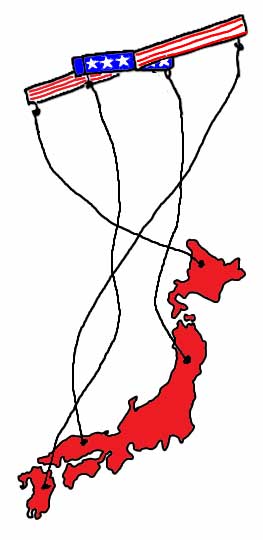Notes
Foreign Policy Under The Radar

There are a lot of suspicious things going on right now in foreign policy. Behind the cover of the presidential race and the drama surrounding the 9/11 hearings, Bush and Co. are attempting some radical moves.
In an editorial the other day, the NYTimes took on the administration over troop redeployment. Not surprisingly, only the broadest outlines of the scheme have been provided, with the Pentagon and the White House refusing to provide more details. As we’ve been told, 60,000 to 70,000 troops are to be redeployed from Europe to the United States.
How, the Times asked, could the U.S. unilaterally pull troops off the Korean peninsula in the midst of tense nuke negotiations with N. Korea? (And how, by the way, does such a move jive with Bush’s preoccupation with “projecting strength?”) Why pull troops out of Germany to save money when the Germans help subsidize those bases? How is it more effective to shift some troops to Eastern Europe for the stated goal of protecting the Middle East and Afghanistan when Germany is actually closer to many of these hot spots? And, why return such a large number of troops to the United States when the experience of living abroad creates a more culturally sensitive, and thus more effective, armed forces?
And, that’s not all. If we can rely on Chalmers Johnson, an avowed Asia and US-Asian relations policy expert and founder of the Japan Policy Research Institute, there are also extremely disturbing developments taking place between the U.S. and Japan.
In an interview with “Democracy Now”, Chalmers claims the administration is exerting serious pressure on Japan to alter their constitution and abandon their policy of neutrality. Not to overlook the fact the United States authored this policy to send a moral message to the world and rectify the scourge of a world war, Chalmers sees the United States as attempting to turn Japan into an armed client state. As part of the effort, Chalmers cites an effort underway to muscle Japan onto the U.N. Security Council securing a critical new vote for the neocon agenda.


Reactions
Comments Powered by Disqus